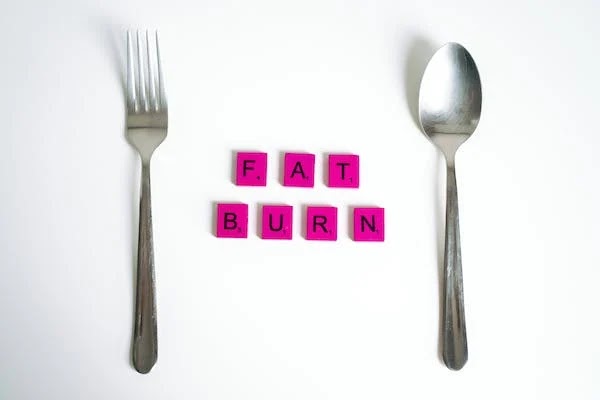What is diet ? What are the types of diet ? What is the most popular diet ? | Diet
What is diet ?
Diet, in terms of nutrition, refers to the foods and beverages that a person routinely consumes (or group). The diet, that is, one that satisfies a person's physical needs, can be controlled throughout a specific illness therapy or the management of a specific health condition. For instance, a diabetic person's diet might only consist of a few meals and beverages that can assist them control their blood sugar levels. For diabetic individuals, a diet rich in fiber, non-starchy fruits and vegetables is advised. Because starchy foods contain a lot of carbohydrates, eating them in significant quantities can raise blood sugar levels.
What are the types of diet ?
There are numerous diets available for losing weight.
While others set calorie, carbohydrate, or fat limits, some people concentrate on decreasing appetite. It might be challenging to decide which ones are worthwhile to try because everyone seems to think they are superior.
The truth is that there is no single diet that works best for everyone, and what works for you might not work for someone else.
Digestive Enzymes Plus Prebiotics & Probiotics Supplement
The science behind the top 9 weight loss diets is examined in this article.
1.The Paleo diet.
According to the paleo diet, you should consume the same foods that your hunter-gatherer ancestors did before agriculture was developed.
The Western diet, which includes eating grains, dairy, and processed foods, is thought to be responsible for the majority of modern ailments.
Although it is questionable whether this diet actually contains the same foods that your ancestors consumed, it is associated with a variety of remarkable health advantages.
How it works: The paleo diet discourages processed foods, sugar, dairy, and grains while promoting whole foods, lean proteins, vegetables, fruits, nuts, and seeds.
Dairy goods like cheese and butter, as well as tubers like potatoes and sweet potatoes, are included on some more adaptable paleo diets.
Weight Loss: Numerous studies have demonstrated that the paleo diet can result in substantial weight loss and a shrinkage of the waistline.
According to studies, those following a paleo diet eat 300–900 less calories per day, more protein, and significantly fewer carbohydrates.
Other benefits: The diet appears to be beneficial in lowering blood pressure, blood sugar, blood triglycerides, cholesterol, and other risk factors for heart disease.
The downside: The paleo diet forgoes entire grains, legumes, and dairy products, all of which are wholesome and nourishing foods.
Etekcity Smart Scale for Body Weight
2. A vegan Diet
For moral, environmental, or health reasons, the vegan diet forbids the consumption of any animal products. Veganism is also linked to opposition to animal abuse and exploitation.
How it works: The strictest kind of vegetarianism is veganism.
It also forbids the consumption of dairy products, eggs, and other items derived from animals, including gelatin, honey, albumin, whey, casein, and several types of vitamin D3.
Weight Loss: Due to its extremely low fat level and high fiber content, a vegan diet may be quite efficient in assisting people in losing weight, frequently without the need to track calories.
In comparison to other diets, vegan diets are consistently connected to a decrease in body weight and body mass index (BMI).
According to an 18-week study, vegan dieters shed 4.2 kg more weight than those following a control diet. The control group was required to restrict calories, whereas the vegan group was permitted to eat until they were satisfied.
Vegan diets are not, however, any more effective for weight loss than conventional diets when comparing calories for calories.
Reduced calorie intake is mostly responsible for weight loss on vegan diets.
Other benefits: Other advantages include a lower risk of developing heart disease, type 2 diabetes, and early mortality.
Limiting processed meat can also lower your risk of developing Alzheimer's and dying from cancer or heart disease.
The downside: Vegan diets might be deficient in a number of minerals, including vitamin B12, vitamin D, iodine, iron, calcium, zinc, and omega-3 fatty acids because they fully exclude items derived from animals.
Digestive Enzymes Plus Prebiotics & Probiotics Supplement
3.Low-Carbohydrate Diets
Since decades, low-carb diets have gained popularity, particularly for weight loss.
There are various kinds of low-carb diets, but they all call for keeping daily carbohydrate intake to 20–150 grams. The fundamental goal of the diet is to make your body rely more on fats for fuel rather than primarily on carbohydrates.
How it works: Low-carb diets severely restrict your carbohydrate intake while emphasizing unlimited amounts of protein and fat.
When you eat very few carbohydrates, your blood is pushed to your liver, where part of the fatty acids are converted to ketones.
In the absence of carbohydrates, your body can then use fatty acids and ketones as its main energy sources.
Weight loss: Numerous studies have shown that low-carb diets are very effective for shedding pounds, especially in overweight and obese people.
They appear to be highly helpful at shedding the risky belly fat that can encircle your organs.
On very low-carb diets, people frequently enter a state known as ketosis. Numerous studies have found that compared to low-fat, calorie-restricted diets, ketogenic diets provide weight loss that is more than twice as great.
Other benefits: Additionally, low-carb diets tend to make you feel less hungry and decrease appetite, which automatically lowers calorie intake.
Low-carb diets may also help numerous significant disease risk factors, including blood triglycerides, cholesterol, blood sugar, insulin, and blood pressure.
The downside: Not everyone should follow a low-carb diet. While others feel horrible on them, some feel fantastic.
There may be a rise in "bad" LDL cholesterol in some individuals.
An extremely rare illness known as nondiabetic ketoacidosis can be brought on by very low-carbohydrate diets. If untreated, this illness, which seems to be more prevalent among lactating women, can be lethal.
However, the majority of people can safely follow a low-carb diet.
Etekcity Smart Scale for Body Weight
4. The Dukan DietThe Dukan diet is a high-protein, low-carb weight loss plan that is broken up into two phases for weight loss and two phases for maintenance. The amount of weight you need to reduce will determine how long you spend in each phase. Every stage has a unique eating plan.
How it works: Oat bran is required throughout the weight loss periods, and consuming high-protein foods at any time is encouraged.
In the subsequent phases, non-starchy veggies are added after which some carbohydrates and fat are added. As time goes on, there will be less and fewer days where you only eat protein.
An extremely rare illness known as nondiabetic ketoacidosis can be brought on by very low-carbohydrate diets. If untreated, this illness, which seems to be more prevalent among lactating women, can be lethal.
However, the majority of people can safely follow a low-carb diet.
Weight loss: In one study, Dukan diet-following women consumed roughly 1,000 calories and 100 grams of protein day and shed an average of 33 pounds (15 kg) in 8 to 10 weeks.
Additionally, a ton of other research support the idea that low-carb, high-protein diets can significantly aid in weight loss.
These include a faster metabolic rate, a drop in ghrelin, a rise in numerous fullness hormones, and a rise in ghrelin, the hunger hormone.
Other benefits: The Dukan diet has no other advantages listed in the scientific literature besides weight loss.
The downside: The Dukan diet is the subject of scant high-quality research.
The Dukan diet restricts both fat and carbohydrates, which is an unscientific approach. Contrarily, compared to both low-carb and low-fat diets, taking fat as part of a high-protein diet tends to enhance metabolic rate.
Furthermore, rapid weight loss brought on by rigorous calorie restriction frequently results in substantial muscle loss.
Your body may start to preserve energy due to the loss of muscle mass and severe calorie restriction, making it incredibly simple to gain the weight back once you've lost it.
Urinary Tract Health Dietary Supplement
5. The Ultra-Low-Fat Diet
An ultra-low-fat diet limits your daily calorie intake of fat to less than 10%. A low-fat diet typically contains 30% of its calories as fat.
According to studies, this diet is inefficient for long-term weight loss.
The ultra-low-fat diet's proponents assert that typical low-fat diets do not contain enough fat and that for weight loss and health advantages, fat consumption must be less than 10% of total calories.
How it works: 10% or less of the calories in an ultra-low-fat diet come from fat. A little amount of animal products are consumed, and the diet is primarily plant-based.
As a result, it often contains little protein (about 10% of calories) and a lot of carbohydrates (approximately 80% of calories).
Weight loss: This diet has been quite effective in helping obese people lose weight. In one study, obese people who followed an ultra-low-fat diet dropped an average of 140 pounds (63 kg).
In another 8-week trial, participants consumed a diet with 7–14% fat, and on average, they lost 14.8 pounds (6.7 kg) of weight.
Other benefits: Research indicates that ultra-low-fat diets can reduce a number of heart disease risk factors, such as high blood pressure, high cholesterol, and inflammation indicators.
Surprisingly, type 2 diabetes can significantly improve as a result of this high-carb, low-fat diet.
Additionally, it might decrease the advancement of multiple sclerosis, an autoimmune condition that harms the eyes, spinal cord, and brain.
Urinary Tract Health Dietary Supplement
The downside: Since fat plays numerous significant roles in your body, the fat restriction may result in long-term issues. They aid in the synthesis of hormones, cell membranes, and the absorption of fat-soluble vitamins.
Additionally, an ultra-low-fat diet restricts the consumption of a number of nutritious foods, lacks variety, and is very challenging to follow.
High Potency Vitamin D for Immune & Bone Support
6. The Atkins Diet
The most popular low-carb weight loss regimen is the Atkins diet. Its proponents maintain that as long as you stay away from carbohydrates, you can lose weight by eating as much protein and fat as you like.
Low-carb diets are particularly helpful for weight loss since they decrease hunger. You eat less calories as a result of this without even realizing it.
How it works: The Atkins diet is broken up into four parts. You begin with an induction phase where you consume less than 20 grams of carbohydrates each day for the first two weeks.
As you get closer to your desired weight, the other phases involve gradually reintroducing healthy carbs to your diet.
Weight loss: Research shows that the Atkins diet promotes weight reduction more quickly than low-fat diets.
According to other studies, low-carb diets are quite effective for shedding pounds. They are particularly effective at getting rid of belly fat, the type of fat that collects in your abdominal cavity and is the most hazardous.
Other benefits: According to numerous studies, low-carb diets like the Atkins diet may lower various risk factors for disease, including blood triglycerides, cholesterol, blood sugar, insulin, and blood pressure.
Low-carb diets are superior to other weight loss programs in terms of how well they affect blood sugar, "good" HDL cholesterol, triglycerides, and other health indicators.
The downside: The Atkins diet has several drawbacks. Like other very low-carb diets, it is generally safe and healthful but may occasionally result in health issues.
7. The HCG Diet
The HCG diet is a drastic weight loss plan designed to help people lose up to 1-2 pounds (0.45-1 kg) every day. Its supporters assert that it increases metabolism and fat reduction without increasing appetite.
Early pregnancy occurs when HCG (human chorionic gonadotropin) is present in large amounts.
Vitamin B12 Fast Dissolve Tablets for Energy Support
It notifies a woman's body that she is pregnant and keeps the production of hormones vital to the growth of the fetus going. Infertility problems have also been treated using it.
How it works: There are three phases to the diet, which is how it operates. You start taking supplements containing HCG during the first stage.
The second phase of treatment involves taking HCG drops, pellets, injections, or sprays combined with an extremely low-calorie diet of only 500 calories per day. A 3-6 week period is recommended for the weight loss phase.
You stop taking HCG during the third phase and gradually increase your food consumption.
Weight loss: The ultra-low-calorie diet alone, not the HCG hormone, is what causes the weight loss that the HCG diet does cause, according to numerous studies.
HCG was also shown not to decrease hunger.
Other benefits: There are no other known advantages of the HCG diet than weight loss.
Similar to most other extremely low-calorie diets, the HCG diet may result in muscle loss, which lowers your capacity to burn calories.
Your body burns fewer calories when you follow such a stringent calorie limit. Your body tries to conserve energy because it believes that it is starving.
Additionally, the majority of HCG products on the market are frauds that don't actually contain HCG. The only way to increase this hormone's blood levels is by injection.
The downside: The diet also includes a lot of negative side effects, such as sadness, lethargy, and headaches. The diet is most likely to blame for one case of a lady getting blood clots.
This diet is not recommended by the FDA since it is unlawful, risky, and deceptive.
Vitamin D3 + K2 with 5000iu of Plant-Based D3 & 100mcg of Vitamin K2 as MK-7
8. The Zone Diet
The Zone Diet is a low-glycemic load diet that recommends keeping protein and fat at 30% each and limiting carbohydrates to 35-45% of daily calories (89Trusted Source).
It advises limiting oneself to carbohydrates with a low glycemic index (GI). The estimated amount that a food would boost your blood sugar levels after intake is given by its GI rating.
The Zone Diet was initially created to lower inflammation brought on by diet, promote weight loss, and lower your chance of developing chronic diseases.
How it works: The Zone Diet calls for balancing each meal with a third of protein, a third of colorful fruits and vegetables, and a fourth of fat, preferably monounsaturated oil from sources like olive oil, avocado, or almonds.
Additionally, it restricts high-GI carbohydrates including bananas, rice, and potatoes.
Weight loss: Research on low-GI diets is not always reliable. While some claim that the diet helps people lose weight and suppresses their hunger, others indicate that they lose far less weight than they would on conventional diets.
Other benefits: The major advantage of this diet is a decrease in heart disease risk factors, such as lower cholesterol and triglycerides.
According to one study, type 2 diabetics who are overweight or obese and follow the Zone Diet may experience better blood sugar regulation, a smaller waist circumference, and a decrease in chronic inflammation.
The downside : The diet's restriction of the consumption of some beneficial carb sources, including bananas and potatoes, is one of its few downsides.
9. Intermittent Fasting
Your body alternates between periods of fasting and eating when you intermittently fast. It regulates when you eat them rather than limiting what you can eat. As a result, it might be considered an eating pattern rather than a diet.
Vitamin B12 Fast Dissolve Tablets for Energy Support
The methods of intermittent fasting that are most widely used include:
The 16/8 method : The 16/8 approach entails foregoing breakfast and limiting your daily eating time to eight hours, followed by a 16-hour fast.
The eat-stop-eat method: Consists of one or two nonconsecutive 24-hour fasts every week.
The 5:2 diet : The 5:2 diet requires you to consume no more than 500–600 calories on two separate days of the week. The following five days do not have any dietary restrictions.
The Warrior Diet : The Warrior Diet calls for eating a single large meal at night and little portions of raw fruits and vegetables during the day.
How it work: Because intermittent fasting makes calorie restriction very simple, it is frequently used for weight loss.
As long as you don't overcompensate by consuming significantly more during the eating intervals, it may cause you to consume less calories overall.
Weight loss: Intermittent fasting typically has excellent weight loss results. When compared to most weight reduction regimens, it has been demonstrated to result in weight loss of 3-8% over the course of 3-24 weeks.
In addition to resulting in less muscle loss than traditional calorie restriction, it may temporarily raise your metabolic rate by 3.6-14%.
Other benefits: Additionally, intermittent fasting may lower blood sugar levels, cholesterol, blood triglycerides, and inflammation-related indicators.
Furthermore, intermittent fasting has been associated to changed gene expressions, higher levels of human growth hormone (HGH), better insulin sensitivity, and greater cellular repair.
Animal studies also imply that it might increase lifespan, prevent cancer and Alzheimer's disease, and aid in the development of new brain cells.
The downside: While intermittent fasting is safe for healthy, well-nourished individuals, not everyone is a good candidate for it.
Women's Multivitamin Gummy, Overall Health and Immune Support
The conclusion
There is no ideal diet for losing weight.
You should choose a diet that fits your lifestyle and preferences because different diets are effective for various people.
The diet that you can follow for the long run is the one that is ideal for you.

.jpg)


.jpg)






.webp)
